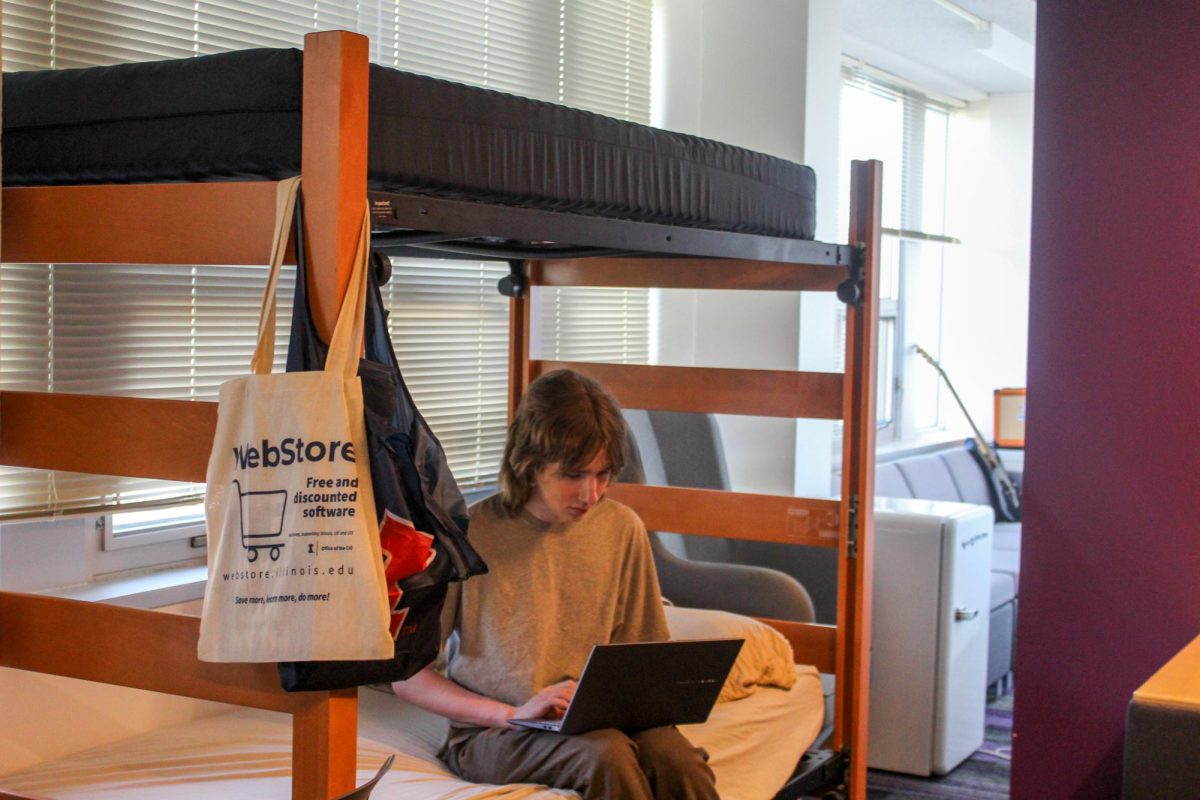Last updated on April 16, 2024 at 04:38 p.m.
This week sees a winter storm sweeping across much of the country, and Illinois is no exception to the extreme drop in temperatures.
Daniel Ly, a freshman who lives at Nugent Hall, noted that his dormitory building seems to have been affected slightly by the winter storm.
“Nugent Hall is a relatively newer dorm so the utilities have been pretty good,” Ly said. “But with the winter storm, I’ve been having trouble with the shower heating up in a timely manner.”
Ly, who has lived in Illinois for all his life, added that “this winter storm has got to be the worst one by far.”
Get The Daily Illini in your inbox!
The drop in temperature has also impacted public transportation within the University.
Anirud Lappathi, freshman in ACES, spoke about having to ride the bus to one of his classes on the South Quad.
“It was pretty crowded on the bus,” Lappathi said. “But the thing I noticed was that the buses were a lot dirtier because people were bringing snow onto the floor, making it muddy and slippery.”
To protect themselves against the cold, the Citizens Utility Board advises residents to “Wear multiple layers of lightweight clothing rather than one thick garment, as this will help keep you insulated. Make sure to cover your head, wear mittens and take frequent breaks.”
The Illinois Emergency Management Agency and the National Weather Service developed a winter weather preparedness guide to help people prepare for harsh conditions.
The guide advises watching for signs of frostbite, like “numbness and a white or pale appearance to the skin,” as well as symptoms of hypothermia, which include slow or slurred speech, memory loss, disorientation and uncontrollable shivering, among other possible signs.
“Wear loose fitting, lightweight, warm clothing in several layers,” the guide states. “The trapped air between the layers insulates. Layers can be removed to avoid perspiration and subsequent chill. It also suggests residents to wear outer garments like mittens, scarves and hats.”
The IEMA stresses having a means of receiving current weather information so that residents are prepared accordingly for outdoor conditions.
“The National Weather Service provides this information via NOAA Weather Radio and websites,” the winter weather preparedness guide states. “Commercial radio and television also air winter weather conditions.”






